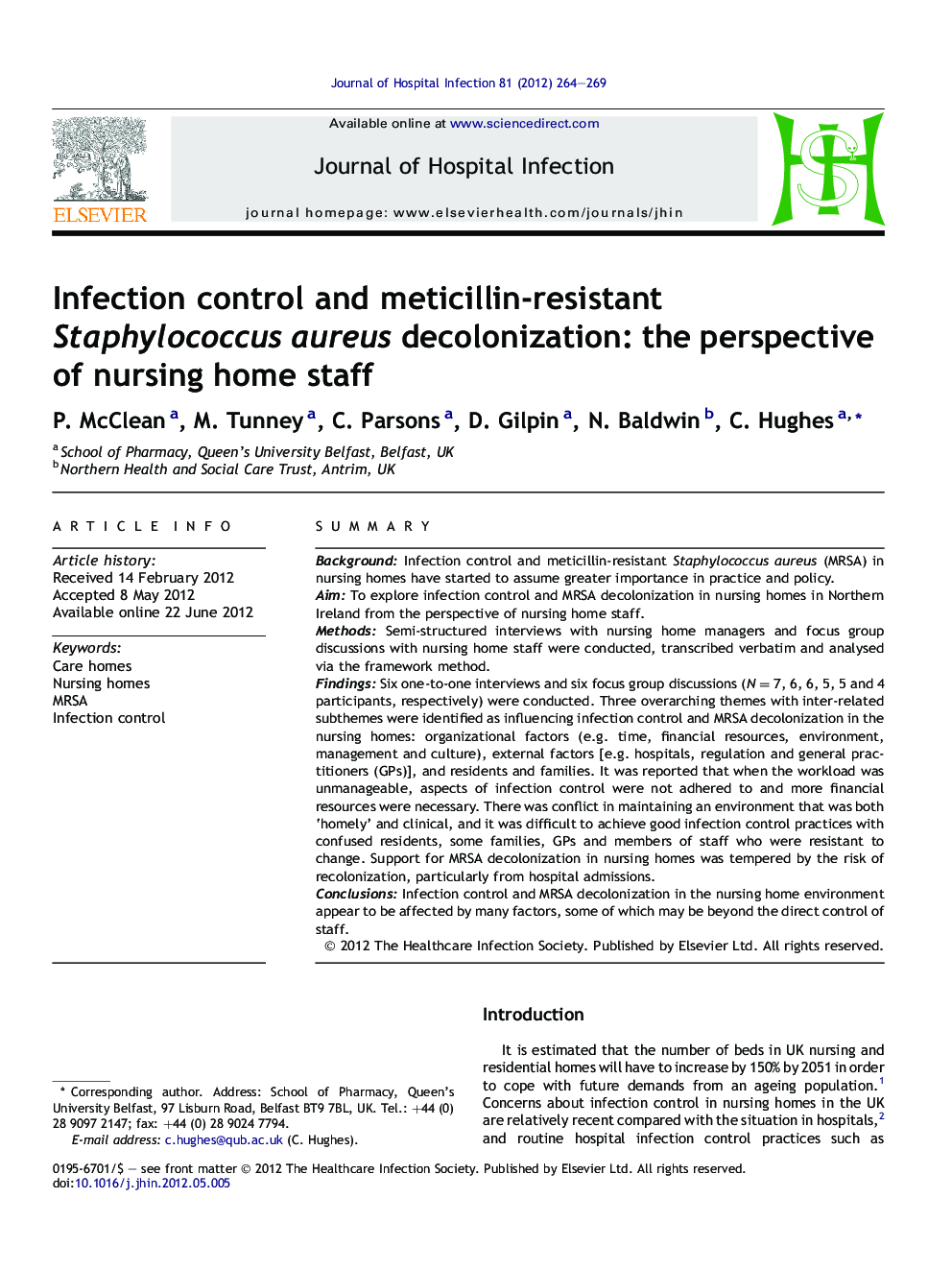| Article ID | Journal | Published Year | Pages | File Type |
|---|---|---|---|---|
| 3371938 | Journal of Hospital Infection | 2012 | 6 Pages |
SummaryBackgroundInfection control and meticillin-resistant Staphylococcus aureus (MRSA) in nursing homes have started to assume greater importance in practice and policy.AimTo explore infection control and MRSA decolonization in nursing homes in Northern Ireland from the perspective of nursing home staff.MethodsSemi-structured interviews with nursing home managers and focus group discussions with nursing home staff were conducted, transcribed verbatim and analysed via the framework method.FindingsSix one-to-one interviews and six focus group discussions (N = 7, 6, 6, 5, 5 and 4 participants, respectively) were conducted. Three overarching themes with inter-related subthemes were identified as influencing infection control and MRSA decolonization in the nursing homes: organizational factors (e.g. time, financial resources, environment, management and culture), external factors [e.g. hospitals, regulation and general practitioners (GPs)], and residents and families. It was reported that when the workload was unmanageable, aspects of infection control were not adhered to and more financial resources were necessary. There was conflict in maintaining an environment that was both ‘homely’ and clinical, and it was difficult to achieve good infection control practices with confused residents, some families, GPs and members of staff who were resistant to change. Support for MRSA decolonization in nursing homes was tempered by the risk of recolonization, particularly from hospital admissions.ConclusionsInfection control and MRSA decolonization in the nursing home environment appear to be affected by many factors, some of which may be beyond the direct control of staff.
